2024-11-29 22:11:24
Climate change creates severe pressure and risks for the food, agricultural, and water systems that ensure well-being.

In a stark warning ahead of the United Nations Climate Convention ‘Conference of the Parties’ (‘COP28’), the Secretary General of the International Federation of Red Cross and Red Crescent Societies (IFRC), Jagan Chapagain, has said the climate and environmental crisis is a “multiplier”, exacerbating almost every humanitarian disaster the world faces.
“Whether it’s a hunger crisis and people forced to move because of drought, a health emergency exacerbated by heat, killer flooding caused by exceptional rain, disputes over diminishing tracts of arable land or an uptick in malaria deaths due to warmer temperatures, climate change plays a role in exacerbating the impact of so-called ‘natural’ disasters. The climate and environmental crisis is the biggest global challenge the IFRC faces. Addressing its impacts means addressing the base issues that turn hazards into disasters and doing that at the base level where people are most affected. If we want to tackle humanitarian disasters, it really is ‘All About That Base’.”
Climate or extreme weather was a contributing factor to the vast majority - new analysis suggests 94% - of all impact-causing natural hazards between 2018 and 2022. And that proportion, according to an IFRC report [1], increases every year.
Artist Gunsu Saracoglu, with her work in the Future of Power art show at COP28, reminds us that “Climate change is having a significant impact on wildfires around the world in the absence of adherence to the Paris Agreement. The total wildfire emissions for 2023 is estimated to be almost 410 megatonnes. Boreal forests in regions all over the world have been experiencing the worst wildfires in recorded history in 2023, according to new research.”

Unfortunately, children and youth face disproportionate risks and impacts from this as the generation who will inherit a planet with tougher conditions in which to live without being responsible for contributing to the problem.
Artist Fatma Kadir, with her work in the Future of Power art show at COP28, draws attention to young climate change advocates who “instead of playing with toys and balloons are at very early ages becoming plaintiffs in climate litigation around the globe–including Juliana v. United States, Held v. Montana, Duarte Agostinho and Others v. Portugal and 32 Other States –as they advocate for their human right to a clean and healthful environment as granted by their constitutions. Youth climate litigation is becoming an integral part of securing climate action and justice. The total number of climate change court cases worldwide has more than doubled since 2017, according to the report prepared by the UN Environment Programme (UNEP) and the Sabin Center for Climate Change Law at Columbia University.”
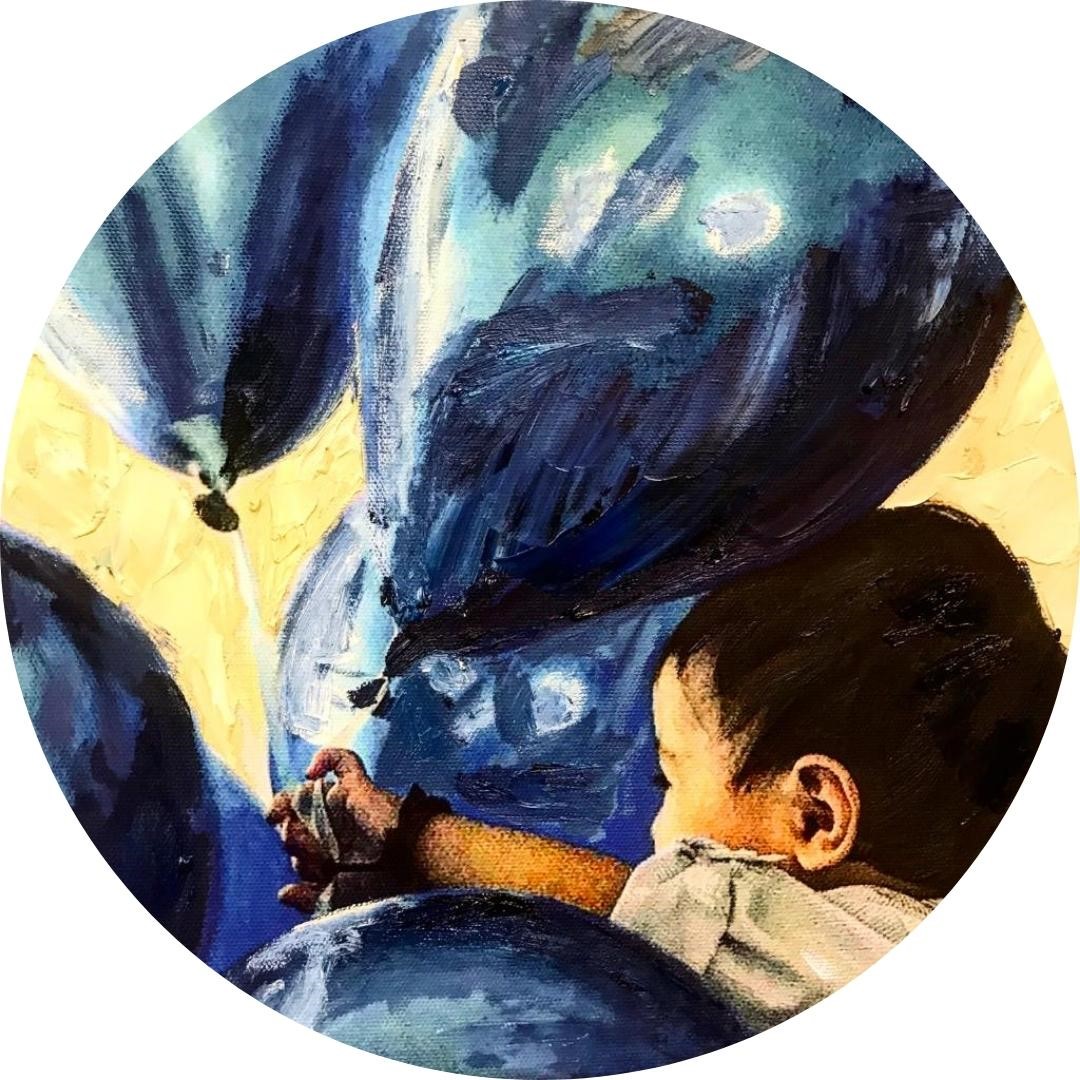
At COP28, for the first time, ways to providing relief to those affected will be explored. IFRC leaders and experts will argue that a humanitarian catastrophe can only be avoided through a mix of mitigation (reducing emissions to stop temperature rises beyond 1.5 degrees), adaptation to a world inevitably warmer than today’s, and accelerated efforts to avert, minimise and address losses and damages. They will say that the focus for adaptation should be on base issues in the countries, communities and crises most affected by climate change, but seeing the least adaptation funding. And they will argue that the most effective projects and initiatives are at the community-led; grassroots initiatives that work from the base up.
Impact on Biodiversity
A recent detailed analysis by aplaceforanimals.com (Please find the full methodology of the study here) dives deep into crucial questions about our planet's threatened species as a result of climate change. Through examination of diverse habitats, the findings are alarming. Amphibians, for instance, are facing greater danger with a staggering 41% on the verge of extinction. Of the 65,000 vertebrate species — constituting merely 3% of all animal species — an astounding 42,100 find themselves under the imminent threat of extinction due to climate change.
The data casts a bright spotlight on Indonesia, a nation boasting unparalleled biodiversity with 10,408 animal species. However, it also holds the unenviable position of having 1,233 species under threat. Yet, the concern doesn't end there. Both Australia and Mexico are ringing alarm bells, witnessing threat rates of 12.5% and 13.9%, respectively.
Aplaceforanimals assessed each nation based on criteria like species diversity, number of endangered species, and conservation efforts. They assigned scores based on these parameters, culminating in an overall rating. For credibility and precision, the research extensively drew upon data from the International Union for Conservation of Nature (IUCN), offering a meticulous perspective on the state of wildlife conservation across nations.
Our world's climate and its biodiversity are inextricably interconnected. Climate change creates severe pressure and risks for the food, agricultural, and water systems that ensure well-being. Artist Ilhan Sayin, with his work in the Future of Power art show at COP28, draws attention to “the landmark win for nature, a 30 x 30 biodiversity goal was adopted by world leaders at the CBD COP15 – to protect at least 30 percent of the planet's land and water by 2030.”

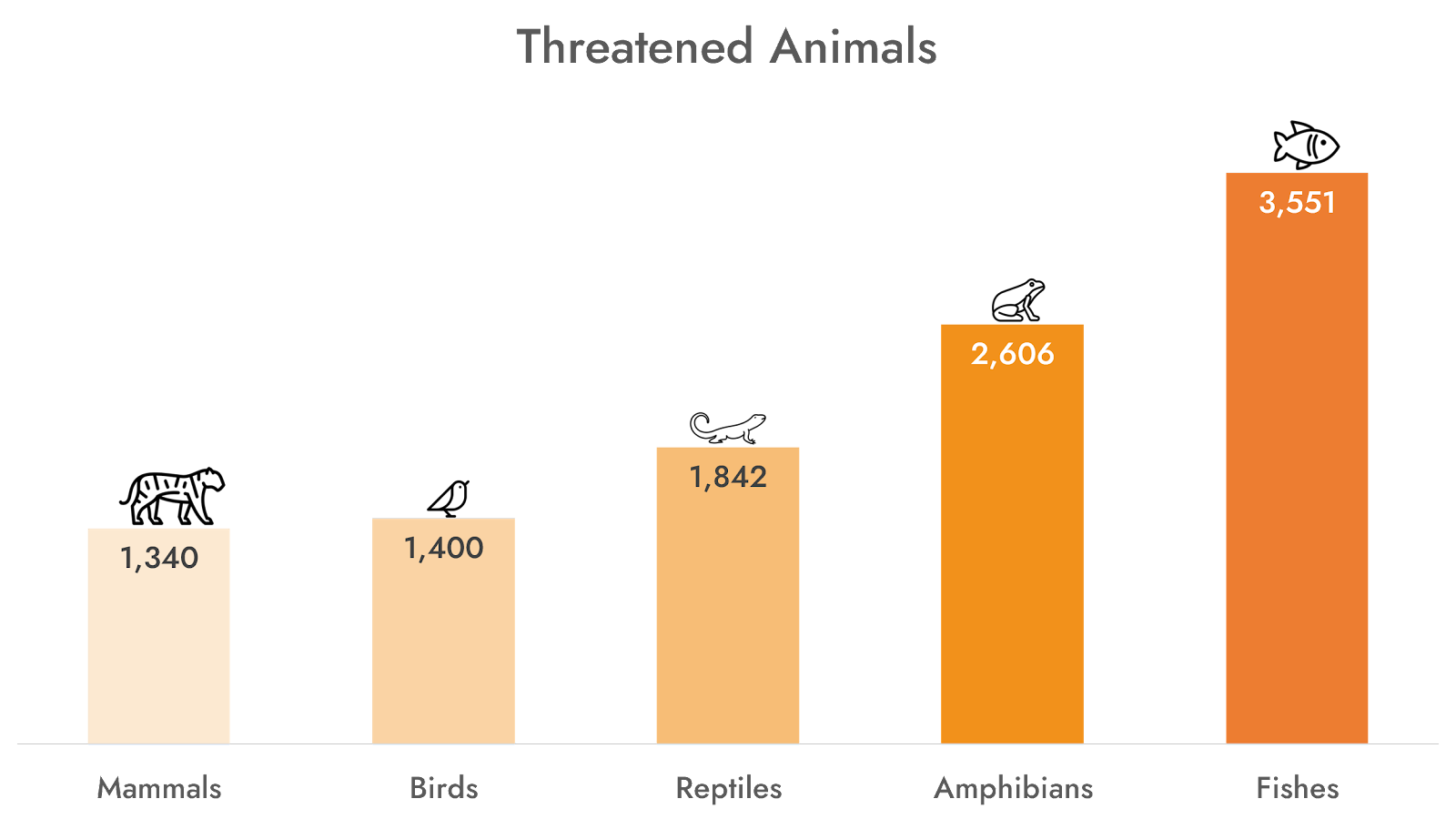
Artist Selva Ozelli --who is also the author of Sustainably Investing in Digital Assets Globally and an ambassador to Oceanic Global -, with her work in the Future of Power art show at COP28, draws attention to the fact that. “the ocean generates 50 percent of the oxygen we need, absorbs 25 percent of all carbon dioxide emissions, and captures 90 percent of the excess heat generated by these emissions. We need to protect and manage our Oceans, Wetlands biodiversity hotspots, and natural carbon sinks. The impact Oceanic Global achieved in just over a year is a testament to the collective commitment, as detailed in their impact report attached here.”

With most endangered species living in the sea, the COP28 Presidency, High Level Panel for a Sustainable Ocean Economy (HLP), UN High-level Climate Champions, and Marrakesh Partnership for Global Climate Action will cast a spotlight on the Ocean and put forth country commitments towards the 100% Sustainable Ocean Management goal and showcase tangible actions supporting the implementation of the Ocean Breakthrough.
Countries with the Richest Animal Diversity
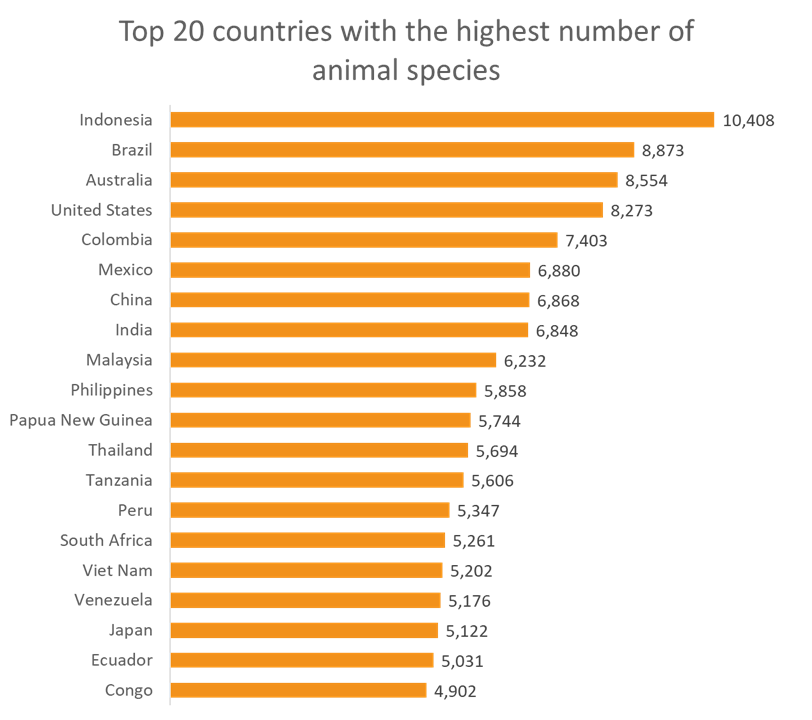
Countries with the Most Endangered Species
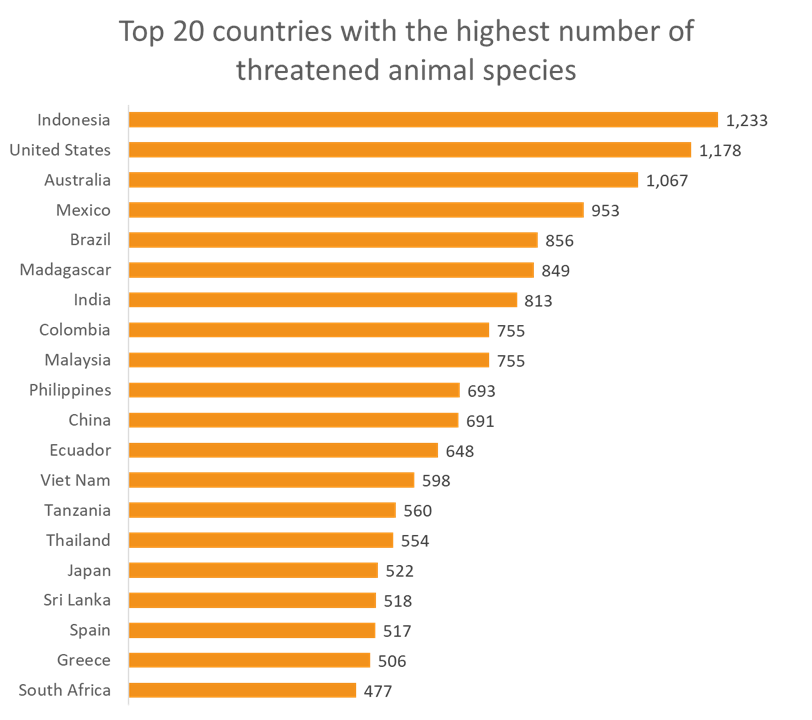
Climate Change Solutions Include Science Culture and Art
At the opening of COP28 on November 30th her Highness Sheikha Latifa Bit Mohammed Bin Rashid Al Maktoum, Chairperson of Dubai Culture and Arts Authority (Dubai Culture) and Member of the Dubai Council Dubai Culture is hosting PROTOTYPES FOR HUMANITY 2023 the world's most comprehensive assembly of academic innovations that have the power to change the world, showcasing 100 selected projects from 46 countries and 92 different universities to experience the future of innovative climate change solutions.
Additionally, the government of the United Arab Emirates proposes to launch a new Group of Friends of Culture-Based Climate Action at the UNFCCC, at a High-Level Ministerial Dialogue on Culture-Based Climate Action to be held on December 8th at COP28 in Dubai.
The Group of Friends is to be an informal coalition of UNFCCC member states focused on strengthening political momentum for an effective, coherent, and coordinated action to support and advocate for culture and heritage-based climate action as well as for the protection of culture and heritage from climate impacts.
The launch of the Group of Friends and the Ministerial is an extremely positive development –for culture and heritage and also for the success of the global effort to tackle climate change.
“Culture and heritage have unparalleled capacity to enable green transformation. The Group of Friends is being formed to advocate for the inclusion on the COP29 agenda of a “Joint Work Decision on Culture and Climate Action” which would pave the way to the adoption at a subsequent COP (perhaps in Brazil!) of a landmark work programme unlocking this potential” explained Andrew Potts, Coordinator of Climate Heritage Network www.climateheritage.org, Culture at COP28 Working Group Secretariat, adding that “the Global Call to Put Cultural Heritage, Arts and Creative Sectors at the Heart of Climate Action, illustrates how culture intersects with climate policy in many dimensions.”
“On December 8th, the Global Resilience Hub will debut an animation series where grassroots communities, activists and entrepreneurs will share their Stories of Resilience” explained Annette Hertwig, Policy Advisor Economics, Welfare, and Sustainability at Global Resilience Partnership.
Future of Power Art Show for COP28 at the Global Resilience Hub
Future of Power Art Show for COP28 will also debut at the Global Resilience Hub. Artist Mehmet Kuran with his work in the Future of Power art show at COP28 points out that. “we have to understand one thing now. We are not the owners of this world. We are guests. We are no different than an antelope or a lizard. As guests, we must respect this magnificent planet. We must live elegantly. By trying to be beneficial to our environment. By sharing. It is certain that beautiful days lie ahead. Change has begun.”
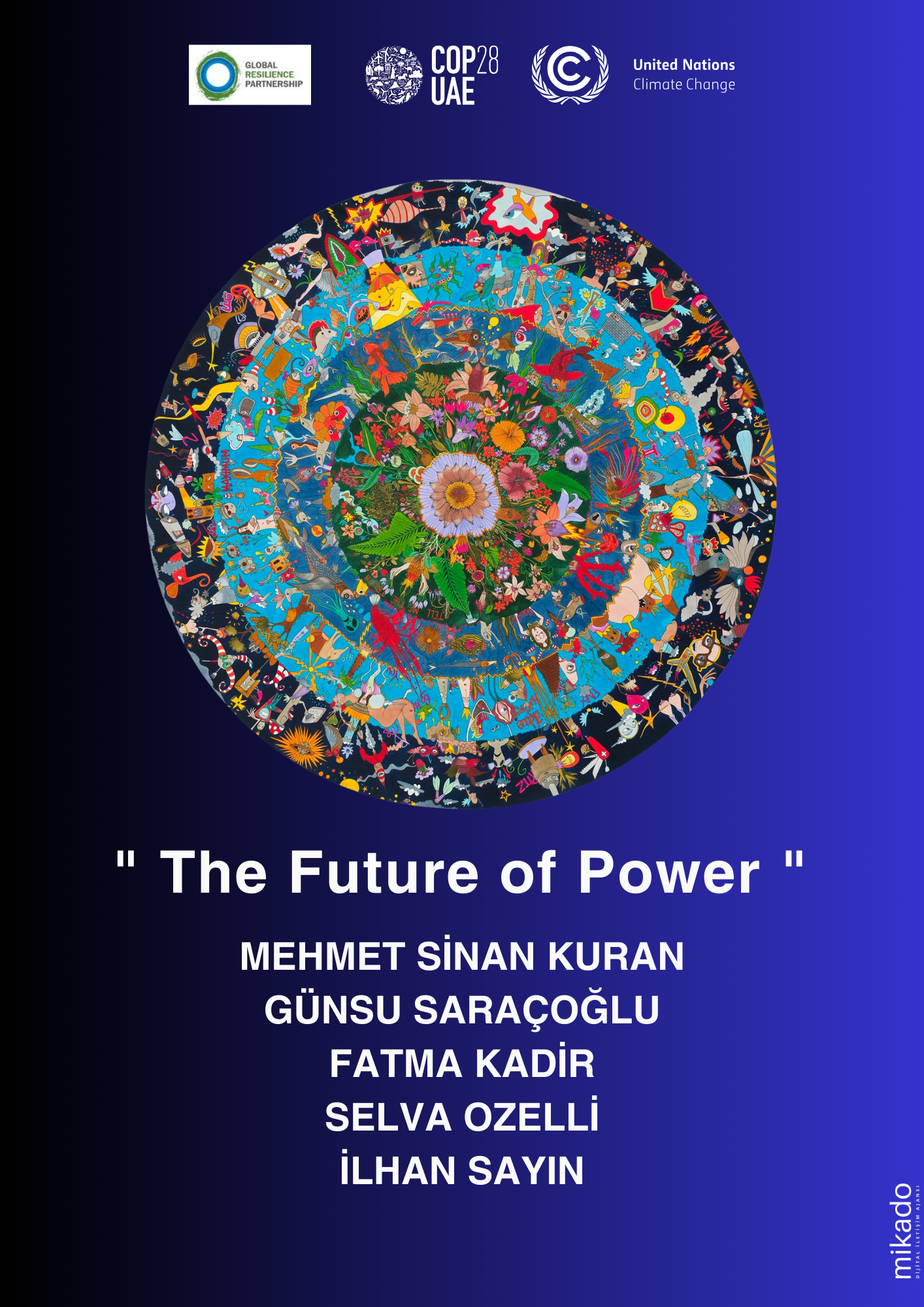
Most Viewed

Elephants, Giant Harmless Animals
2024-11-29 22:11:23

Commercial whaling and climate change are inhibiting evolutionary change in Arctic whales
2024-11-29 22:11:24

Talking About Earth Day at Havre de Grace Maritime Museum
2024-11-29 22:11:24

World Environment Day: 5th June
2024-11-29 22:11:24

Lithium: Global Projects and Policies of Economic Powers
2024-11-29 22:11:24
Comment

Why we need a UN Treaty on plastic pollution The Ellen MacArthur Foundation is a UK charity working on business, learning, insights & analysis, and communications to accelerate the transition towards the circular economy.

Air Pollution for Kids Air is all around us and we need it to survive.

Why We Need to Stop Plastic Pollution? Our oceans are being filled and killed by throwaway plastics.

Climate Change, Ecological Crisis and Sustainability We are all agents for change in climate action.

Climate Racism Climate Racism: Social Inequalities in the Age of Climate Change
Brigitte Colman
2024-11-30
Toutes les espèces ont le droit de vivre dans unesituation égale. La terre apartient à tout.
Anne-Blanche
2024-11-30
T'en es sûre??? Je pense pas parce que ce monde appartient aux riches...